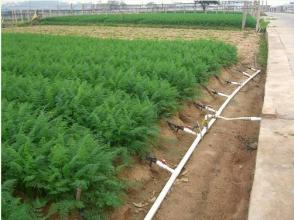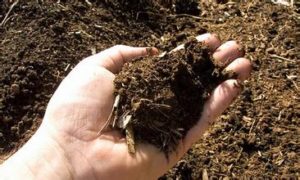Matters need to attention for greenhouse vegetables
belt conveyor machine fertilizer granulator machinery vertical packaging machine agricultural machine Invention patent machinery
Now the out of season vegetable of north has started to plant. Some people just prepared for land reclamation, and some of them have started to plant. Therefore, we will give some suggestions for green house vegetables.
First, land preparation and base fertilizer
1, more types of base fertilizer
The types of base fertilizer should be the manure (pig manure, cow dung, sheep manure, chicken manure, etc.), compound fertilizer, microbial fertilizer, trace elements (calcium, boron, zinc is particularly important), these four have their own role , So be sure to imply all kinds of fertilizers.
2, manure must be mature, and the more the better
Although it has been stressed that no matter what is the manure, it must be fermented, and must turn to the ground. However, most of persons pay no attention to these, they usually use non-decomposed manure, and finally lead to a series of problems like burning roots. Therefore, if you want to plant good vegetable, you first need to learn how to ferment manure. For the fermented manure, the more application the better.
There have been some farmers who tried to apply 40 cars (agricultural four-wheelers) manure 1 and a half acres of pepper, and there is no fertilizer damage phenomenon. Actually, we are unlikely to apply too much, but we have to apply more than 5000kg per acre.
Fermented manure, no foul smell.
Use indecomposed chicken manure will lead to tomato burning.
3, do not overuse the compound fertilizer
Manure can be used more, but the amount of compound fertilizer should be appropriate, and sometimes there is often the attitude that the more use the higher the yield. In general, the use of compound fertilizer should be 70kg or so. If you use much compound fertilizer, there will lead to soil salinization and the crop trace elements will also be lacked. In addition, the boron fertilizer application also should be appropriate. For example, when you apply Sodium borate pentahydrate, there only need 220 g per acre.
4, pay attention to soil disinfection
If the land is planted in successive years, there are often a lot of soil-borne diseases. In the land preparation time, we can apply carbendazim, pentachloronitrobenzene, thiram and other pharmacy, and then turned them to the soil effectively to reduce the soil germline base.
5, high ridge cultivation
The high ridge cultivation can make the root growth space bigger, the soil permeability better, so that the root ability for absorbing water and nutrient will be stronger, the yield will be higher, can also effectively reduce the soil disease.
Second, the seedbed management
6, seedbed can not lack of water and also didn’t need much water
For people who want to raise plant by themselves, to ensure the enough water for seedbed is necessary. Plant lack of water will have the performance of not growing which will affect the flower bud differentiation and the output of plant.
7, pay attention to control damping-off
These two diseases are often caused by the greater  humidity of soil. The mirodine hydrochloride has a very good prevention and treatment effect for the damping-off disease.
humidity of soil. The mirodine hydrochloride has a very good prevention and treatment effect for the damping-off disease.
8, pay attention to control whitefly and virus disease
In the late summer and early autumn season, the whitefly will often fly to the greenhouse to damage and spread the virus, so that we should pay much attention to control whitefly and virus disease of the vegetables (especially eggplant). You can use Thiamethoxam / pymetrozine + amino oligosaccharides / morpholine guanidine / napenednicin and other agents before transplanting, some of the pharmacy is absorbed by the leaves, part of the drug is absorbed by the roots, so as to better protection.
Spraying or watering thiamethoxam + amino oligosaccharides before transplant can be a good control of whitefly and virus disease
Third, treatment after transplanting
9, transplant depth should not exceed the graft interface
In order to prevent fusarium wilt, verticillium wilt and other soil-borne diseases, cucumber, eggplant, pepper and other vegetables often be grafted, but if the seedlings are more deeper than the graft, the bacteria can be grafted from the graft invasion.
10, pouring water when planting is a way to prevent and control soil-borne diseases.
After transplanting, we often have to pour some water to prevent and control soil-borne disease. For pepper, we can use the planting water to irrigate about 15 days which can control the fusarium wilt. For tomatoes, we can use biocide / kasuga and other agents to effectively reduce the late bacterial wilt, bacterial ulcer disease, myeloid necrosis and other diseases. In addition, with the plant watering, the use of a little microbial agents on soil-borne disease also is necessary.
11, pay attention to the choice of plastic film
It is recommended that we should use transparent white plastic film in the winter season, so that the sun through the plastic film to make the soil absorb more heat and improve the temperature, especially in the deep winter season, this role is very important. The use of black film, although better for weeding, the soil can not absorb more heat so that affect crop growth.
the article is queted from: http://www.fert.cn/news/2017/08/21/083222984708.shtml
Powder mixer Packaging machine Fertilizer production line Formula adjustable equipment Poultry fertilizer processing equipment
Previous:The Importance of Foliar Fertilizer
